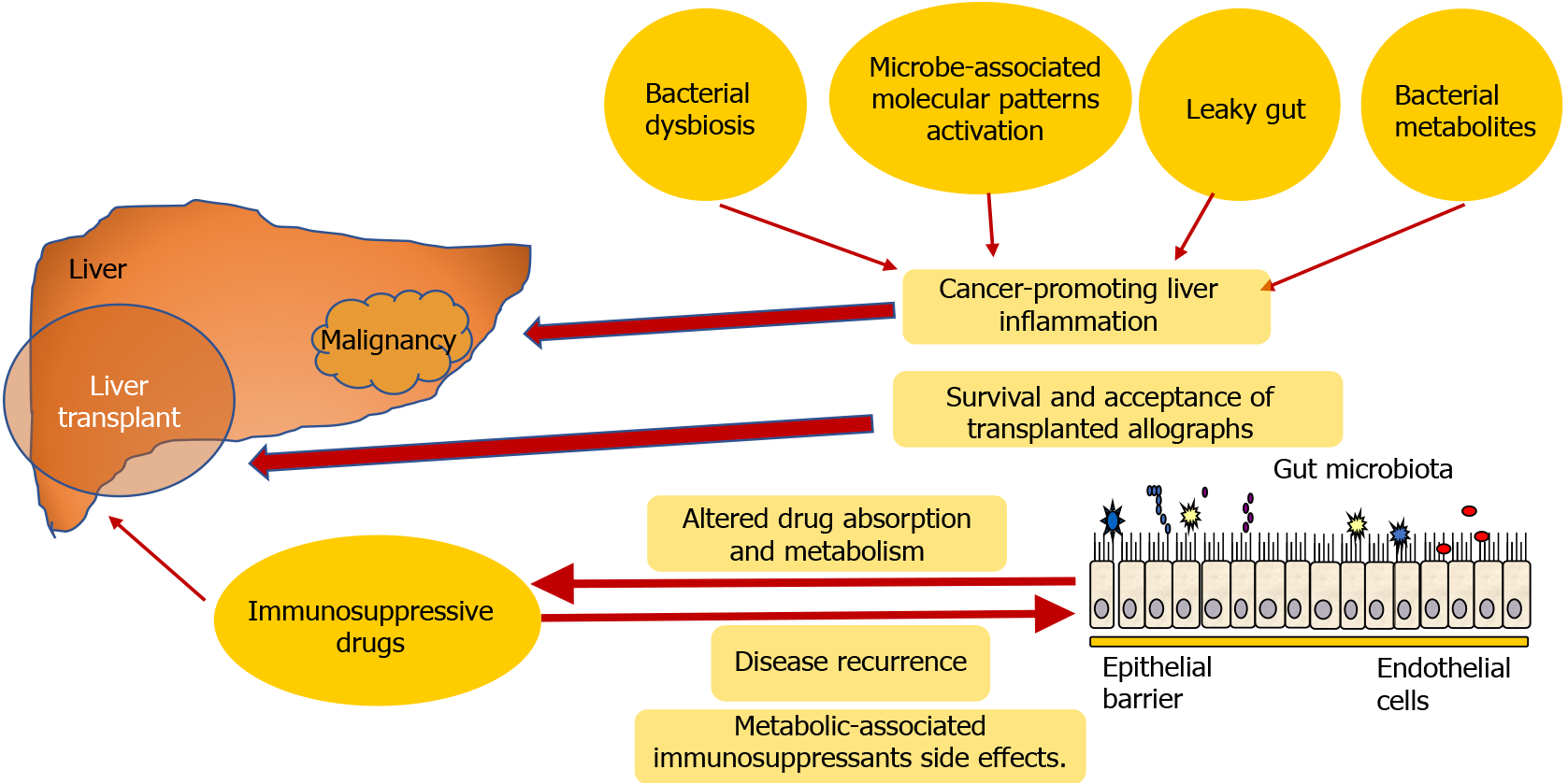©The Author(s) 2021.
World J Immunol. Oct 30, 2021; 11(2): 11-16
Published online Oct 30, 2021. doi: 10.5411/wji.v11.i2.11
Published online Oct 30, 2021. doi: 10.5411/wji.v11.i2.11
Figure 1 Alterations in intestinal microbiota were observed at various stages of liver diseases, including cirrhosis, alcoholic fatty liver disease, hepatocellular carcinoma, etc.
All of the shown mechanisms can drive cancer-promoting liver inflammation, fibrosis, and genotoxicity. For example, microbe-associated molecular pattern activation (such as toll-like receptor 4 by lipopolysaccharide) contributes to the epithelial-mesenchymal transition observed in hepatocellular carcinoma. On the other hand, immunosuppressive drugs used after liver transplantation may be associated with dysbiosis, where the functional variations in gut microbiota are based on the immunosuppressive regimen regardless of the shift in taxonomy. This may further contribute to the disease recurrence and metabolic-associated immunosuppressants side effects. However, this interaction is reciprocal: Microbiota can also alter drug absorption and metabolism.
- Citation: Peruhova M, Peshevska-Sekulovska M, Velikova T. Interactions between human microbiome, liver diseases, and immunosuppression after liver transplant. World J Immunol 2021; 11(2): 11-16
- URL: https://www.wjgnet.com/2219-2824/full/v11/i2/11.htm
- DOI: https://dx.doi.org/10.5411/wji.v11.i2.11













